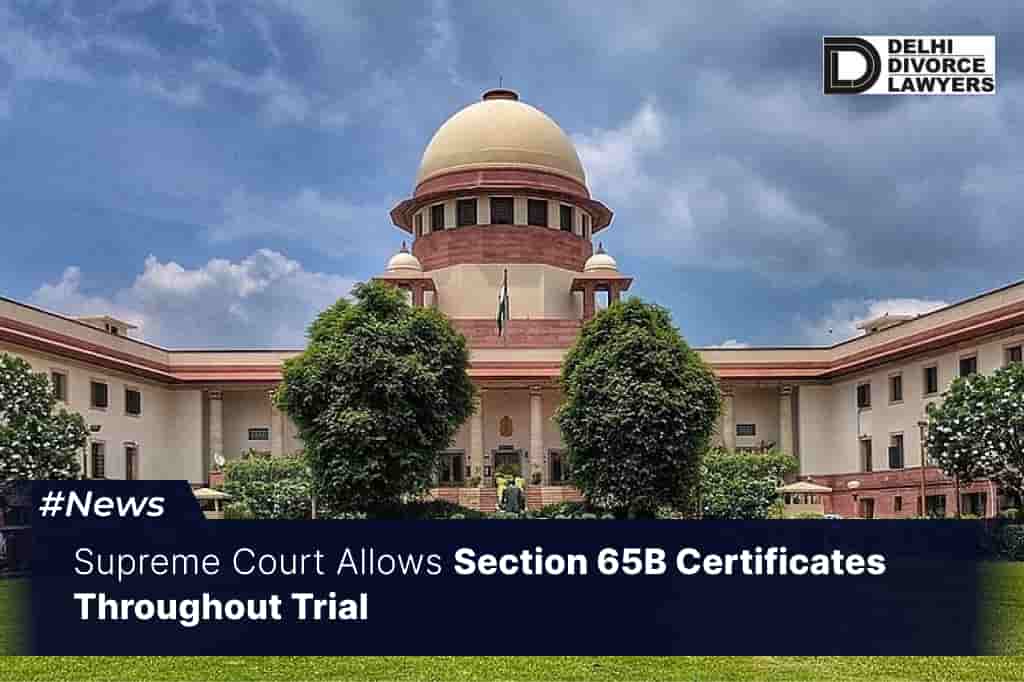The Supreme Court made it clear that Section 65-B certificates are allowed at any time during a trial under the Indian Evidence Act. This was emphasized during the Bangalore bomb blasts case, where the Court talked about the importance of fairness in criminal trials. They stressed that being impartial is crucial for justice. The Court said that fair proceedings mean treating everyone equally, making sure the guilty face fair consequences, and protecting the innocent from unnecessary legal issues. In this case, the State appealed to the Karnataka High Court, which supported the Trial Court’s decision to reject prosecution applications under Section 311 of the Code of Criminal Procedure.
The two-Judge Bench of Justice Vikram Nath and Justice Rajesh Bindal held, “Fair trial in a criminal case does not mean that it should be fair to one of the parties. Rather, the object is that no guilty should go scot-free and no innocent should be punished. A certificate under Section 65-B of the Act, which is sought to be produced by the prosecution is not an evidence which has been created now. It is meeting the requirement of law to prove a report on record.”
The Bench said that using the Section 65B certificate under the Indian Evidence Act, 1872, wouldn’t harm the accused too much.
During the proceedings, Additional Advocate General Aman Panwar represented the appellant/State, and Advocate Balaji Srinivasan was the counsel for the respondents.
In the case about the explosive devices in Bangalore in 2008, the Court recognized how important it was to thoroughly and scientifically investigate the incident. One of the accused took the lead, and they seized various electronic devices like a laptop, external hard disc, pen drives, floppies, CDs, SIM cards, mobile phones, memory cards, and digital cameras. These were analyzed at the CFSL, Hyderabad, and a report was submitted to the Trial Court in 2012 to use during the statement recording phase.
When the accused said they wouldn’t accept the report without a Section 65-B certificate, they quickly got the certification. After that, they filed an application under Section 311 of the Cr.P.C. to bring in the certificate as evidence and recall a witness. But, the Trial Court, not fully understanding the legal stuff, said no. The High Court later agreed, mainly because they thought it took too long to get the Section 65B certificate.
The Supreme Court in the above regard observed, “… it cannot be inferred that there was delay of six years in producing the certificate. In fact, report received from CFSL, Hyderabad on the basis of the contents of electronic devices dated 29.11.2010 was already placed before the Trial Court on 16.10.2012. In fact, the stand of the prosecution was that when the original electronic devices were already produced and marked MOs, there was no need to produce the certificate under Section 65-B of the Act. Still, as a matter of abundant caution, the same was produced that too immediately after objection was raised by the accused against the production of CFSL report prepared on the basis of the electronic devices seized.”
The Court also specified that the accused would have ample chances to challenge the evidence presented by the prosecution, in line with the intended purpose of Section 311 of the Cr.P.C. Additionally, the Court acknowledged that the main goal of the Code is to uncover the truth.
“However, the power under Section 311 of the Cr.P.C. can be exercised to subserve the cause of justice and public interest. In the case in hand, this exercise of power is required to uphold the truth, as no prejudice as such is going to be caused to the accused”, added the Court.
In light of these circumstances, the Supreme Court sanctioned the appeal, annulled previous orders, and instructed the Trial Court to continue with the proceedings.

